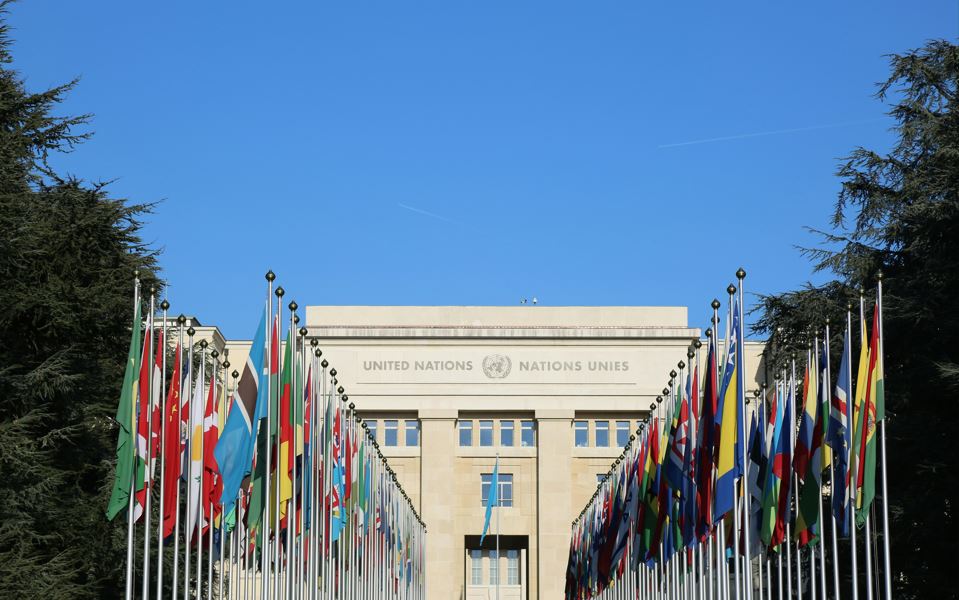By Roger Kotila
If both Russia and the US had not wielded Security Council vetoes in the last few years, the ugly wars in Ukraine and Gaza might never have happened. Anyone who has paid attention to such calamities knows that the UN Charter’s grant of the veto to the P5 powers (U.S., Russia, China, the UK, and France) is a mockery of the rule of law and democratic ideals.
Why should the five victors of a far-distant war hold so much power over the other 187 member nations of the UN—even including India, the world’s most populous country?
Many now believe the P5 veto is grossly undemocratic, archaic, and too often destructive. Under the Earth Constitution (EC), this travesty would end. The EC, if adopted from within the UN system, would grant voting rights to all nations by the simple act of the UN General Assembly (UNGA) becoming the House of Nations, as further explained below.
Two-Track Strategy for Success
In light of our current global governance dilemma, the World Constitution & Parliament Association/Earth Constitution Institute has recently adopted a two-track strategy to save the planet. Track 1 calls for a new world organization under the Earth Constitution that operates parallel to the United Nations. This grassroots strategy is necessary in the event that the UN is unwilling to transform itself into a democratic and law-abiding global organization.
We can’t rule out this latter possibility of self-transformation, so WCPA’s Track 2 strategy aims to do just that by invoking Article 109 of the UN Charter for the purposes of bringing about a complete review of the charter. Several major steps are involved:
1. According to paragraph 3 of Article 109, a majority vote of both the UN General Assembly and the UN Security Council can mandate a formal review conference. No veto can be applied to this decision.
2. Upon holding the comprehensive review, the UNGA may adopt structural changes to the charter by a two-thirds favorable vote; once again, the P5 can’t veto this outcome.
3. In the last step, the UN’s member states must ratify the adopted measures. At this stage, the P5 can potentially veto any decision made by the members. But many scholars believe that an exercise of the veto after such a lengthy process of the entire body of the UNGA would be unlikely. The great news is that the outcome of a review conference, once adopted and ratified, becomes binding on all member states.
The EC as Ideal Model for a “new UN”
Consider this possibility:
If and when the charter review process gets underway, WCPA and ECI would be present at such a historic meeting. We would present our plan to merge the UN system with a genuine democratic world federal government operating under the authority of the Earth Constitution.
We believe the EC is compelling enough that the UNGA may indeed use part, or all of it, as a guide, model, and authority for creating a “new UN.”
Under this scenario, the UNGA invokes charter review, then turns to WCPA and ECI for specific provisions. For example, it might adopt the EC’s plan for a House of Peoples so that “we, the people of Earth” gain voting rights.
Or perhaps the EC could be used as the model for granting binding voting rights to all nations, thus turning the UN General Assembly into what the EC calls the House of Nations. The UNGA adopts for itself voting rights. Under the EC’s authority, it does not need “approval” from the UN Security Council to democratize itself.
Or, the UNGA could borrow from the EC’s well-crafted articles on creating a World Judiciary System. This alteration may be very compelling because most member nations are frustrated by the lack of enforceable global law in a world that is literally going up in flames.
I understand that for some people this may sound visionary (which it is). But the wheels for the urgently needed transformation are necessary and already in motion. With the help of a few more key people it could happen much sooner than most people realize.
Roger Kotila, PhD – US Vice President, WCPA; President, Democratic World Federalists

